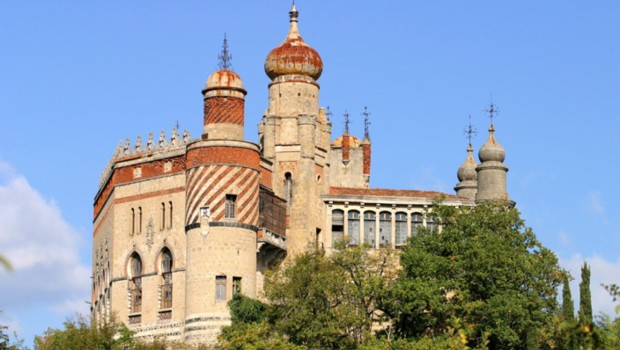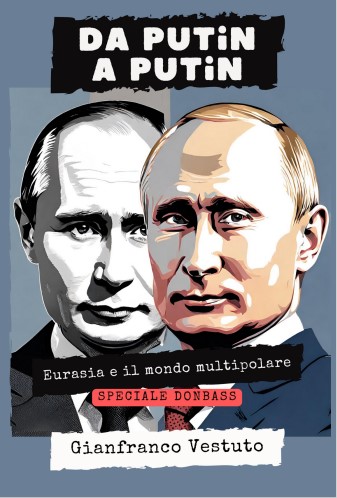Rocchetta Mattei: History or Fiction Novel?
So what is Rocchetta Mattei? It’s a castle in Italian rocchetta means small castle of most unique design ( medieval and moorish) that was built up between 1850 and 1859 to be the palace of Count Cesare Mattei, a nobleman fond of medicine and the inventor of electro-homeopathy, an innovative kind of medicine that met with the fierce opposition of the traditional scientific world and yet attracted a large number of followers and supporters. Electro-homeopathy is based on the concept of electric polarization of human body that interacts with electro-polarized homeopathic medicines which, once applied on the skin, make the body react to the extent that it will cure itself. In spite of the official science opposition, the theories of Count Mattei raised a strong popular interest that encouraged him to start industrial production of his remedies. By 1884 as many as 107 depots all over the world were distributing Count Mattei’s medicines; the most important among those depots were those in Belgium, China, Haiti and the United States. The headquarters of that innovative medicine and thriving business were at Rocchetta Mattei, the residence of Count Cesare Mattei.
Our Russian readers, as well as literature lovers from all over the world, may like to know that Russian writer Fyodor Dostoevsky in his masterpiece The Brothers Karamazov made one of that novel characters mention Doctor Mattei as the supplier of a medicine that had cured his pains caused by some sort of arthritis with a medicine that no other doctor had been able to prescribe him before.
After the initial success and due to his old age Count Mattei passed control of his pharmaceutical empire to a young relative that apparently ended up to be the cause of its failure; in fact some wrong investments done by that young man caused a major loss that spoiled the last years of Count Mattei and made him overly suspicious about all people around him. He died in 1896 so his scientific heritage and secrets were taken over by his assistant Mr Mario Venturoli who managed to bring the company back to profit. Distribution network was then expanded to the extent that in 1914 depots around the world were as many as 266, i.e. more than double what they had been before. In 1937 also Mr Venturoli passed away and in conjunction with WWII a fast decline started so that was the end of Count Mattei pharmaceutical empire. After the war a local entrepreneur tried to transform Rocchetta Mattei into a tourist attraction but his attempts had only a partial success so that a period of abandonment started; it lasted till 1986 when Rocchetta Mattei was enrolled under protection of the Italian State board in charge for historical and artistic wealth and a major bank financed its restoration. For those who’re fond of movies it’s probably interesting to know that Rocchetta Mattei hosted the works of two famous movie directors, Pupi Avati for his Balsamus and Marco Bellocchio for his Henry IV. Though there’s no clear evidence, it seems that Rocchetta Mattei was visited in the past even by famous people such as Czar Alexander II and the King of Bavaria Ludwig III.
Through the years, after Count Mattei’s death, the secrets behind electro-homeopathic medicine were passed from one person to the other, just one to one each time, within the Mattei and Venturoli families, the latter still holding it nowadays. As far as electro-homeopathy as a current medical healing method is concerned, though it’s uncommon to hear about it in the West,today in India students of the Faculty of Traditional Medicine can attend a three year course in electro-homeopathy. Students passing the test at the end of the course receive a State recognised diploma.
Rocchetta Mattei is an amazing place to visit because it’s able to communicate to the visitor an air of mystery that’s well resumed in the video that is shown in the article below . Hence it’s no point to comment it further because what’s the most exciting part of Count Matte’ life is his legacy such as his medicine studies, the secrets held by the last heir in the family, the raise and fall of of his business and all the messages that the stones of the castle probably hide from ignorant or unqualified eyes. For long time supporters and detractors argued whether he was a scientist or a necromancer or even a swindler, a benefactor or an esotericism expert anyway all what’s left today is his fabulous mansion, a course at an Indian university, a number of well hidden secrets and the memories of such a full life that could seem to be a tale more than a real one… History or a Fiction Novel?
Alberto Bertoni
























